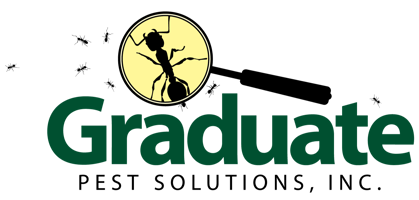According to a survey conducted by the National Pest Management Association, Ants are America’s most annoying pest. This isn’t terribly surprising to us because ants are notorious for intruding even when you have a pristine, clean home. While ants don’t typically pose a health risk—thus “nuisance”—they can cause property damage if left unchecked. We’ve gathered tips for keeping your home nuisance-free.
#1: Keep water out
One of the main needs of ants is moisture. This is true for all kinds of ants. Carpenter ants week out wet wood for prime colony locations. It’s a common misconception that they eat wood, which is why you’ll see entry points that look like they’re surrounded by sawdust. This is from carpenter ants removing wood, not eating it!
You’ll likely find ants near areas of moisture in your homes, such as sinks, toilets, and damp basements. These are great places to start when trying to prevent ant invasions. Repair leaky pipes, replace roof tiles and gutters when they break and run a dehumidifier in your basement.
#2: Ant prevention is a year-round job
While we tend to see ants entering our home during the warmer months, vigilance all year is the best prevention method. When homeowners do spring cleaning, we strongly encourage them to do a pest-focused sweep of their property. This ant prevention includes sealing cracks in the exterior foundation with caulk. Keep firewood stored at least 20 feet away from the home. Trim bushes, shrubs, and tree limbs so they don’t touch or overhang your home.
#3: Lock up the source
There is one thing, above all, that pests enter your home for FOOD! In this case, it could be open boxes of cereal, spilled soda, or food splatter behind the oven. Mop your floors, especially around the stove, dishwasher, and fridge. Transfer any open containers, like cereal, to airtight containers. Routinely removed expired food from your pantry and cupboards.
#4: Call a professional for IPM
There are many DIY methods to handling your nuisance problem but none are as reliable as calling in a professional. Of course, we are biased in this sense, but we know from experience that ants continue to make their way inside unless permanent solutions are applied.
This is where integrated pest management (IPM) methods come in. The core principle behind IPM is prevention. Specifically, prevention through tried-and-true methods practiced and refined over many years. We’ve outlined some IPM-based solutions above but a good professional will notice a tear in a window screen or crack in the cement.
Download Our Guide to Ants in Your Home
Ready to remove the nuisance? Our team at Graduate Pest Solutions specializes in prevention. Call us at 413-566-8222 or contact us with any questions or if you are experiencing a pest problem. We have the knowledge and service necessary to help keep your home and workplace pest-free!
YOU MAY ALSO LIKE
These related articles

